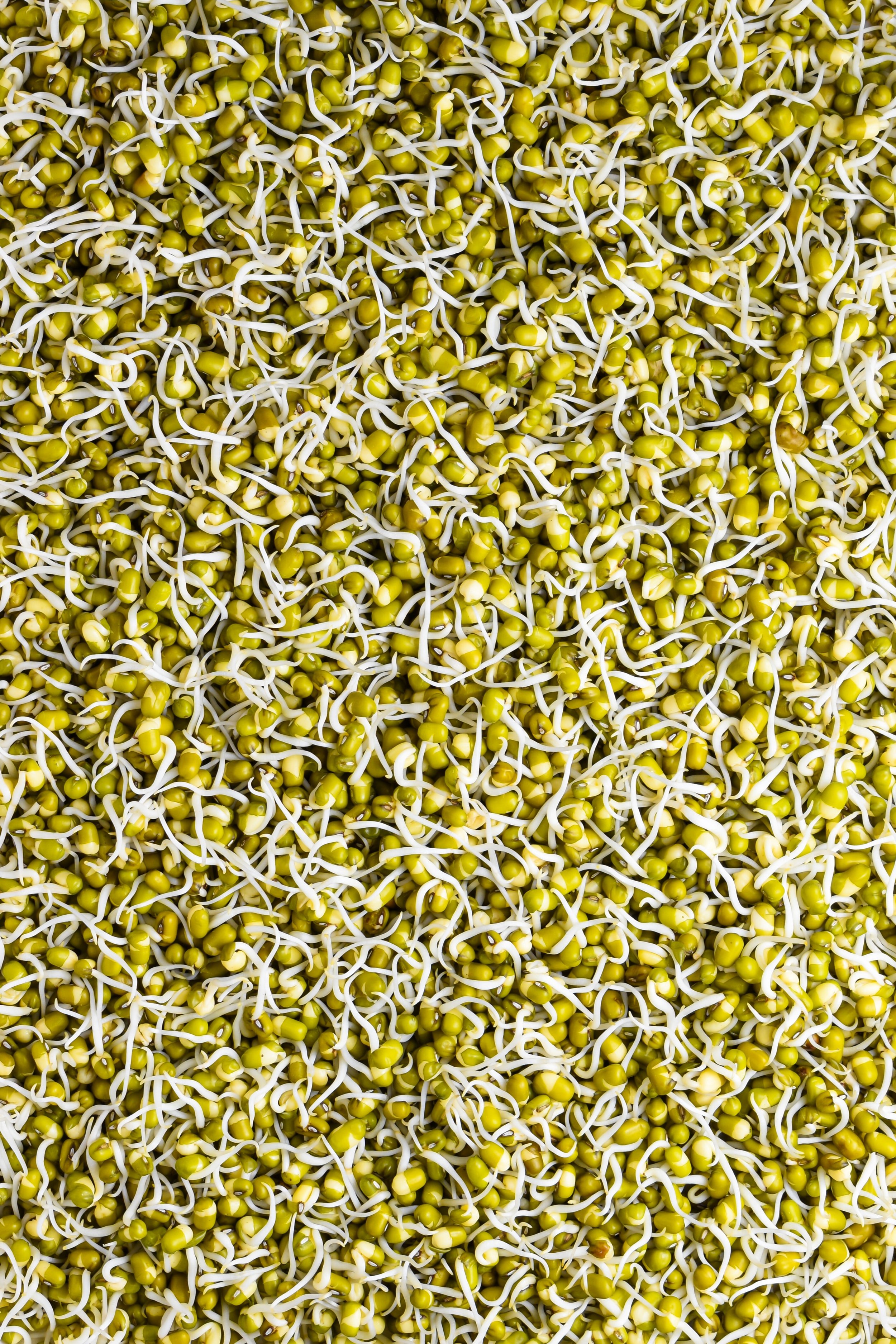Sprouting 101
Sprouts are some of the most nutrient-dense foods available and are incredibly easy to make at home with a bit of patience, time and good technique. Essentially all grains, seeds, nuts and legumes can be sprouted and will increase in nutrient density with soaking and time for germination. Sprouting unlocks a plant’s vitality, renders carbohydrates, fats and proteins more easily digestible, and increases the micronutrient profile. The soaking process also removes a compound called phytic acid, which can interfere with mineral absorption. Sprouts make for a delicious snack, salad topper or addition to any savory dish.
Tools you’ll need:
Sprouting vessel: a quart-sized mason jar with a screen (or cheesecloth) or a sprouting bag (a nut milk bag works in a pinch; the bag method works better for larger beans)
Clean, fresh, filtered water
Plant to sprout: lentils, mung beans, sunflower seeds, adzuki beans and garbanzo beans are all good places to start
The sprouting process – an overview:
A basic recipe for sprouts is one part seed to >3 parts water.
Wash and rinse your seed very well. Cover with plenty of clean, filtered water and soak overnight.
The next morning, drain and rinse the seed thoroughly.
Rinse and drain at least twice a day, for 3-4 days until little sprout tails emerge.
Elements for successful sprouts:
There are several key elements to keep in mind for successful sprouts – water, air, space, light and warmth. To start the process, seeds are soaked overnight and rinsed very thoroughly the next morning. They then need to be rinsed twice daily – morning and evening, or about every 12 hours – throughout the sprouting process. After rinsing the sprouts, they should be thoroughly drained to help deter rot, then returned to your sprouting vessel. You want to move the sprouts around a bit after each drain to ensure adequate airflow and avoid mold, rot or slime. Sprouts need plenty of room to grow, so be sure not to overfill your vessel, otherwise there is too little airflow and too much competition for light and air, which deters sprouting. Sprouts should be kept in a dark place out of direct sunlight (indirect light is fine) to avoid overheating. Sprouts should be kept slightly warm, about 70-75°F, so they begin to germinate. Too much heat will cause the sprouts to wilt and die, and too little heat will deter growth. Making your own sprouts at home is an easy, delicious, nutritious and quite economical. With a bit of tending and maintenance, you can have a steady supply of delicious sprouts to snack on.

